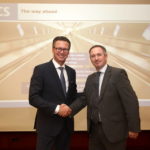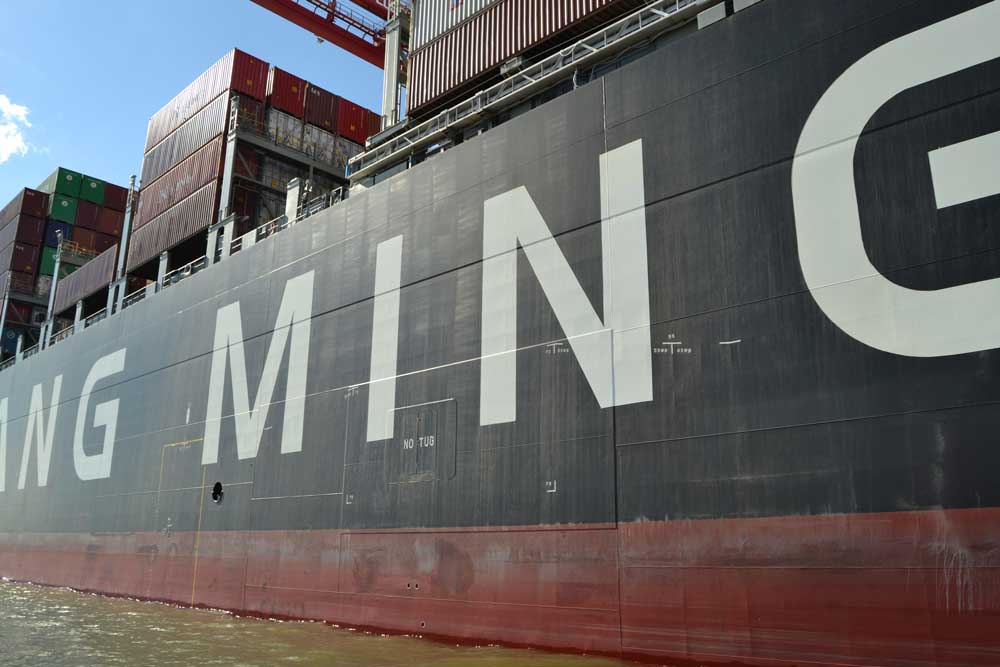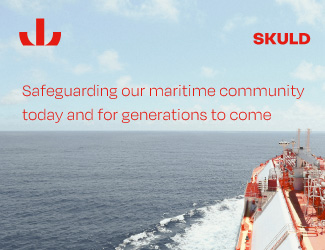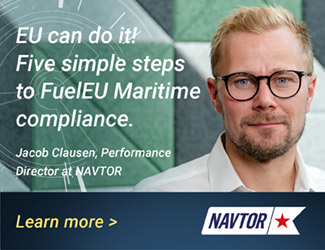Before handing over the chairmanship of IACS, Knut Ørbeck-Nilssen gave some insights
on his beliefs about the future classification market and its international association
The CEO of DNV GL – Maritime officially handed over the chairmanship of the International Association of Classification Societies (IACS) to[ds_preview] Lee Jeong-kie of Korean Register recently. He took the opportunity to reflect on the achievements of his year in office and on the challenges he sees lying ahead for IACS.
»The world is spinning faster, the speed of change accelerating and the complexity of the maritime industry increasing,« with digitalisation and decarbonisation the twin trends likely to dominate over the next decade, he said.
For its part, IACS needs to »continue to focus on being agile in addressing relevant industry topics, to strengthen the role of class and to ensure that [it] keeps its position as the leading technical association in these times of rapid change,« stated Ørbeck-Nilssen.
Great progress has already been made over the past year, he pointed out, since class has already adapted to: the widespread use of electronic certificates, first introduced in late 2017; modern survey technology such as drones and the live streaming of videos; developments towards autonomous shipping; and new requirements for cyber resilience.
IACS’ focus this past year has been on allowing for innovation in all these areas by reviewing its relevant resolutions and potentially revising them in order to support the maritime industry. In doing so its aim has been to »modernize classification in anticipation of the developments in digitalization and new technologies,« all the while focusing on safety and quality.
For example, with autonomous shipping IACS has been »examining which standards present potential regulatory barriers to autonomous ship operations,« Ørbeck-Nilssen reported, as well as »looking into the work on development of a common terminology for different levels of autonomy.«
On cyber security, an IACS-led joint industry working group is developing a risk model that could serve as a basis for managing cyber risk, he continued. The IACS Panel is also developing twelve recommendations for the newbuilding stage, nine of which have already been circulated for comments, and intends to report to the IMO (International Maritime Organization) on progress made at MSC 100 the end of the year.
Indeed, as the IMO’s main technical advisor, IACS works closely with the body’s 134 Member States to ensure that IMO legislation can be applied consistently across the world. Over the last 10 years it has advised the IMO on the development of no fewer than 130 Unified Requirements.
Ørbeck-Nilssen said that during his chairmanship the focus had been on trying to reinforce recognition of IACS’ role as »the leading technical association in the maritime industry« by reviewing its membership criteria, quality systems and performance measurement, as well as by «boosting transparency and ensuring continuity’ within the organization.
He pointed out that the time required to process new IACS membership applications had been reduced – although the criteria for joining remained »qualitative rather than quantitative,« he stressed, and were predicated on a proven track record in the application of common structural rules.
Quizzed for more detail on any potential new members, Ørbeck-Nilssen deferred to secretary general Robert Ashdown, who disclosed that no applications were currently pending, but that the association anticipated having more members »in the next five to ten years« once the tremendous amount of new regulations introduced in recent years had been assimilated.
»Joining IACS is a project, a long-term goal,« he said, »not a series of hoops to be jumped through. Standards have to be maintained year-on-year. Any member coming in will have a legacy fleet – the ships in which will have to comply with all criteria,« he added.
However, Ashdown pointed out that non-members could already take part in IACS Technical Forums, which he encouraged any society considering membership to do since »they give a good idea of the work involved.«
Continuing the account of his chairmanship, Ørbeck-Nilssen outlined how he had also introduced more regular meetings with the press, and included more statistical information about members’ performance in the IACS Annual Review, in the interests of boosting transparency about the association’s work.
As regards ensuring continuity within IACS, he revealed that discussions were underway to strengthen the role of the IACS Chairman’s office – comprising the outgoing, current and incoming chairmen – as well as increasing the authority and role of the secretary general.
Asked about the future profile of classification as an industry, the IACS chairman expressed his view that it would be less personnel intensive but would »utilise and harvest much more information from data than we have done in the past. The ability to do that alongside the human touch is the way forward for class, as for many industries,« he said.
His own personal advice to his successor on »the way ahead« for IACS – were he to be asked – he said, would be threefold, resuming the focus of his own chairmanship: execute the association’s newly developed five-year strategy; strengthen IACS leadership by being agile in addressing relevant industry topics and increase the level of transparency within IACS by further developing the Annual Review.
»The role of class is building trust,« he concluded. »I think it is important that class aspires to be a beacon of light, setting the course with modern requirements, transparent processes and the highest quality of service. The industry is changing. Our ways of working may be changing. But the purpose of classification still remains the same: To protect life, property and the environment.«
















